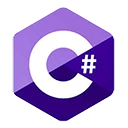C# can be used for blockchain development, particularly in the context of smart contract development for blockchain platforms like Ethereum. In this example, we'll introduce the basics of creating a simple smart contract using C# with the Nethereum library.
Sample C# Code for Smart Contract
Here's a basic example of C# code for a simple smart contract:
using Nethereum.Web3;
using Nethereum.ABI.FunctionEncoding.Attributes;
using System;
using System.Threading.Tasks;
[Function("getValue", "uint256")]
public class GetValueFunction : FunctionMessage { }
[Function("setValue", "bool")]
public class SetValueFunction : FunctionMessage
{
[Parameter("uint256", "value", 1)]
public int Value { get; set; }
}
class Program
{
static async Task Main()
{
var web3 = new Web3("https://mainnet.infura.io/v3/YOUR_INFURA_PROJECT_ID");
var contractAddress = "0xYourSmartContractAddress";
var contract = new Contract(web3, "YourSmartContractAbi", contractAddress);
var getValueFunction = new GetValueFunction();
var result = await contract.QueryDeserializingToObjectAsync<int>(getValueFunction);
Console.WriteLine("Current Value: " + result);
var setValueFunction = new SetValueFunction();
setValueFunction.Value = 42;
var transactionHash = await contract.SendTransactionAsync(setValueFunction);
Console.WriteLine("Transaction Hash: " + transactionHash);
}
}
This code provides a basic example of a C# program that interacts with an Ethereum smart contract using the Nethereum library. In a real application, you would work with more complex contracts, manage private keys securely, and implement additional features.
Important: Replace `'YOUR_INFURA_PROJECT_ID'`, `'YourSmartContractAddress'`, and `'YourSmartContractAbi'` with your actual Infura project ID, smart contract address, and ABI.

